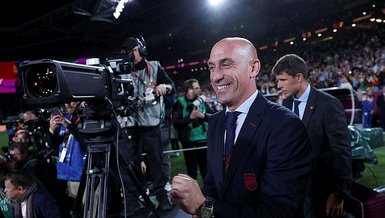What started as a shining victory for Spain's women's team in the World Cup has turned into a bitter clash, with Spain's football federation now threatening legal action against female players.
On Friday, 81 top female players, including the current national team, released a statement through the union Futpro saying they refuse to play for Spain under the current leadership.
The move came after a bombshell speech by the federation's president, Luis Rubiales. Instead of resigning for kissing player Jennifer Hermoso, as was expected, Rubiales painted himself as a victim of a witch hunt, complained of the "scourge" of "false feminism," insisted the kiss was mutual, and shouted repeatedly that he would not quit.
Responding to the female players' strike, the federation said that "playing for the national team is an obligation for any member of the federation if they are called upon to do so," accusing the female players of lying about what happened and threatening legal action.
On Friday night, Hermoso broke her silence, saying Rubiales' version of the post-World Cup victory kiss was "categorically false and part of the manipulative culture that he himself has generated."
"I felt vulnerable and a victim of an impulse-driven, sexist, out-of-place act without any consent on my part. Simply put I was not respected," she wrote, adding that she, her family and teammates had been pressured by the federation to justify Rubiales' actions.
"As the World Cup Champion, we as a team do not deserve such a manipulative, hostile, and controlling culture," she added.
At the same time, the federation released photos showing a celebratory hug between Hermoso and Rubiales, calling it "conclusive evidence" that the federation head "did not lie," insinuating that the player instead instigated the kiss with her boss.
Although Rubiales refuses to quit, Spain's government has filed a complaint with the Spanish Sports Council to have him suspended, but the legal move is not guaranteed to work.
"As far as we can do anything about it, these are Rubiales' last hours," Spain's Sports Minister Miquel Iceta told El Pais on Saturday, expressing concern that the federation is damaging Spain's reputation.
Iceta said this is a "Me Too" moment for Spanish football, referring to the worldwide movement against sexual abuse, harassment, and rape that made headlines starting in 2017.
"This has become a test of our collective capacity and the structures of sport to embrace equality between men and women… sometimes an accident provokes a reaction that ends up strengthening the values we want to defend," he added.
The federation could also be hit financially. Some of the body's main sponsors, including Spanish companies Iberia, Iberdrola, and Renfre, have criticized the federation's position and called for measures to "preserve the dignity" of players.





















